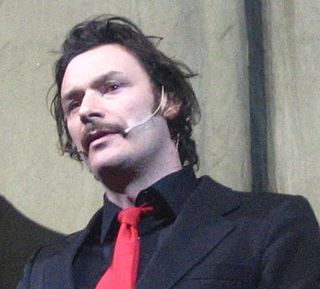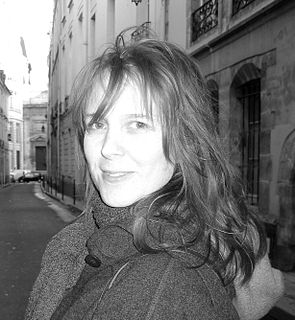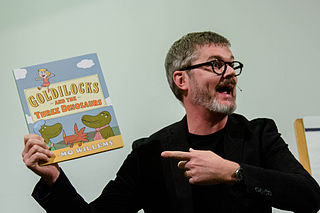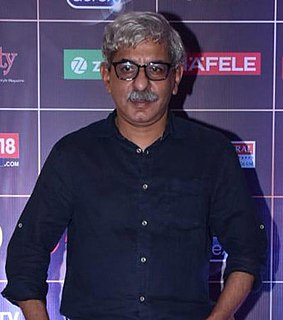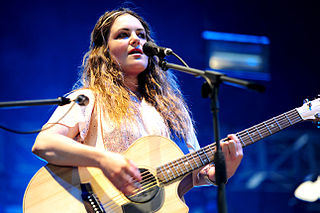A Quote by Julian Barratt
Adapting a book doesn't mean the book stops just because you've made a film out of it.
Related Quotes
It's one of those things where the book has all these stars that burn really bright that you hang onto and they're all saying, 'This is The Girl on the Train experience.' All those stars or hooks needed to be in the film, but sometimes they needed to be a bit different. It's important when adapting such a popular book to hit all those points but also break out expectations without slaughtering the book. And that was, for me, the joy of adapting the book.
Obviously it's easier when I' m doing the adapting myself. But my feeling is, your potential upside far outweighs the downside. Ultimately, they [moviemakers] can't change your book. Your book remains on the shelf the way you wrote it. If they make a great movie of your book, then you have the equivalent of millions and millions of dollars of advertising for your book. If the movie's not that good, that doesn't mean the book's not good. It doesn't change what you've already written. It has the potential to reach more people.
This was an age before e-books. We all knew that the only way you can allow a book to survive in print in the long term is in paperback. The hardback has a certain life, and then it stops having that. It stops selling, and if you want the book to just stay around there has to be a paperback edition. So if there were not a paperback edition the book would eventually disappear from the shelves, and we would have lost the battle.
A book, being a physical object, engenders a certain respect that zipping electrons cannot. Because you cannot turn a book off, because you have to hold it in your hands, because a book sits there, waiting for you, whether you think you want it or not, because of all these things, a book is a friend. It’s not just the content, but the physical being of a book that is there for you always and unconditionally.
Wayne Wang, the director of Because of Winn-Dixie the movie, understood the book and transferred as much of the feeling of the book onto film as humanly possible. I think he did a fabulous job. And also I'm thrilled because the movie brings people to the book - people that wouldn't know about the book - and that's a great thing.
The book I am best known for, or only known for, is a novel I am prepared to repudiate: written a quarter of a century ago, a jeu d'esprit knocked off for money in three weeks, it became known as the raw material for a film which seemed to glorify sex and violence. The film made it easy for readers of the book to misunderstand what it was about, and the misunderstanding will pursue me till I die. I should not have written the book because of this danger of misinterpretation.
I began writing books after speaking for several years and I realize that when you have a written book people think that you're smarter than you really are if I can joke. But it's interesting. People will buy your book and hire you without reading the book just because you have a book and you have a book on a subject that they think is of interest to themselves or e to their company.
I source images and ideas from different parts of my experiences, and sometimes they are things that are made-up, or just appear out of nowhere, like out of a dream or an image that I've seen in a book, or even the title of a book that I'm staring at on a shelf. It's a good way to write songs, just stare at a bookshelf!
